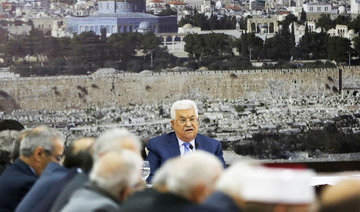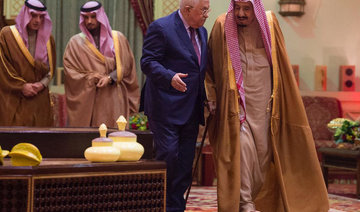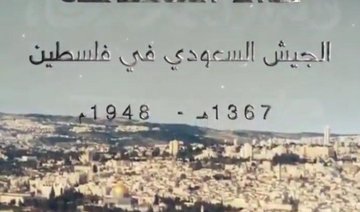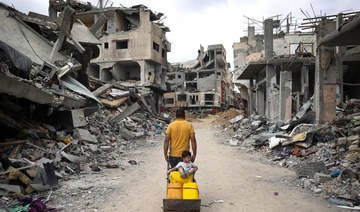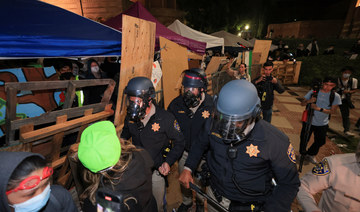AMMAN: Israeli legislatures and right-wing party activists appear to be in a race to pass as many anti-Palestinian laws and resolutions as possible as they can in anticipation of a possible indictment of their prime minister and the holding of new parliamentary general elections in 2018.
PLO Executive Committee member Hanan Ashrawi strongly denounced the Israeli Knesset’s approval of a bill to place Palestinian neighborhoods in Jerusalem under Israeli sovereignty and to require the approval of 80 Knesset members (out of 120) to return any part of Jerusalem to the Palestinians.
“Such a law severely changes the status of Jerusalem and creates an illegal and extrajudicial Israeli and Jewish exclusivity over all of Jerusalem — a city whose status remains that of “corpus separatum” under the UN General Assembly Resolution 181,” she said in a statement to the press following a meeting with Italian member of Parliament Lia Quartapelle Procopio in Ramallah.
Nabil Abu Rudeineh, the spokesman for Palestinian President Mahmoud Abbas, told reporters that neither the Israeli Knesset law nor the Trump decision is legitimate.
“The Israelis are trying to take advantage of the US decision to destroy everything and this requires a firm Arab, Islamic and international response to put an end to the Israeli roistering action that is leading the region into the abyss.”
Abu Rudeineh said that the forthcoming meeting of the Palestine Central Council in Ramallah on Jan. 14 will take necessary steps to challenge these acts which are aimed at the Palestinian national identity.
Khalil Tufakji, the head of the Arab Studies Society Map department, told Arab News that Israel is moving quickly to cut off any chance for peace. “They are taking concrete steps to change the demographic balance of the area which will result in some 150,000 Palestinians to be stripped of their connections to the Jerusalem municipality.”
Tufakji said that parts of Jerusalem’s Shufat, Kuf Aqab, Bir Onah, Walajeh, Abu Dis, and Ezzarieh will soon enter a state of legal limbo. “We are calling these locations area X in reference to the fact that they will be in some kind of unknown legal limbo.”
Daniel Seidmann, an Israeli lawyer working on issues regarding Jerusalem, told Arab News that these neighborhoods are in fact entering into an uncharted legal territory.
“This law is recognizing that these Palestinian neighborhoods are untenable but they are replacing their status with yet another untenable and unknown legal future.”
Seidmann rejects the idea that the areas beyond the wall are somehow being held in escrow until there are negotiations to settle where they belong.
“The new law doubles down on occupation, makes arriving on an agreement much more difficult and at the same time makes getting rid of 150,000 residents of Jerusalem much easier.”
Back in 1980, Israel had changed its Basic Law to require 61 out of 120 votes to make any legal change in the municipal boundaries of Jerusalem, said Seidmann. “Now they need a majority vote without having to cross the 61-member threshold which will make it much easier to redraw the municipal limits of Jerusalem.”
Hanna Issa, a Palestinian who specializes in international law, told Arab News that all Israeli actions since 1967 are null and void according to the international law and UN resolutions.
“Even after passing Israeli laws in the Knesset, these actions regarding Jerusalem including the settlement activities have no place within the international law and signed treaties. Whatever Israeli Knesset passes is null and void.”
Israelis racing to pass as many anti-Palestinian laws as possible
Israelis racing to pass as many anti-Palestinian laws as possible
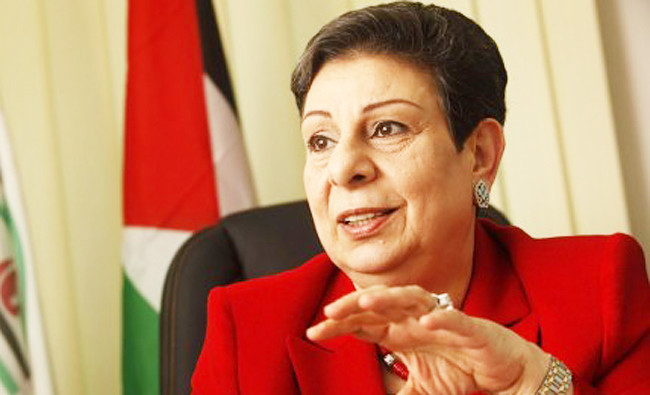
Rebuilding bombed Gaza homes may take 80 years, UN says

- If construction materials are delivered five times as fast as in the last crisis in 2021, re-construction could be done by 2040
- Palestinian data shows that around 80,000 homes have been destroyed
GENEVA: Rebuilding homes in the Gaza Strip could drag into the next century if the pace follows the trend of previous conflicts, according to a UN report released on Thursday.
Nearly seven months of Israeli bombardment have caused billions of dollars in damage, leaving many of the crowded strip’s high-rise concrete buildings reduced to heaps, with a UN official referring to a “moonscape” of destruction.
Palestinian data shows that around 80,000 homes have been destroyed in a conflict triggered by Hamas fighters’ deadly attacks on southern Israel on Oct. 7. Israeli strikes have killed tens of thousands of Palestinians.
The assessment, released by the UN Development Programme, said Gaza needs “approximately 80 years to restore all the fully destroyed housing units.”
However, in a best-case scenario in which construction materials are delivered five times as fast as in the last crisis in 2021, it could be done by 2040, the report said.
The UNDP assessment makes a series of projections on the war’s socioeconomic impact based on the duration of the current conflict, projecting decades of ongoing suffering.
“Unprecedented levels of human losses, capital destruction, and the steep rise in poverty in such a short period of time will precipitate a serious development crisis that jeopardizes the future of generations to come,” said UNDP Administrator Achim Steiner in a statement.
In a scenario where the war lasts nine months, poverty is set to increase from 38.8 percent of Gaza’s population at the end of 2023 to 60.7 percent, dragging a large portion of the middle class below the poverty line, the report said.
Doubts grow over Gaza truce plan

- Israel still waiting for Hamas’s response to the latest proposal
GAZA: Doubts grew on Thursday over the fate of a Gaza truce plan that, as the week began, had raised hopes of an end to nearly seven months of war between Israel and Palestinian Hamas militants.
Israel was still waiting for Hamas’s response to the latest proposal, said an Israeli official not authorized to speak publicly.
Mediators have proposed a deal that would halt fighting for 40 days and exchange Israeli hostages for potentially thousands of Palestinian prisoners, according to details released earlier by Britain.
Any such deal would be the first since a one-week truce in November saw 80 Israeli hostages exchanged for 240 Palestinian prisoners.
The war started with Hamas’s October 7 attack on southern Israel that resulted in the deaths of 1,170 people, mostly civilians, according to an AFP tally based on Israeli official figures.
Israel estimates that 129 captives seized by militants during their attack remain in Gaza, but the military says 34 of them are dead.
Israel’s retaliatory offensive, vowing to destroy Hamas, has killed at least 34,596 people in Gaza — mostly women and children — including 28 over the past day, according to the health ministry in the Hamas-run territory.
Much of Gaza has been reduced to a grey landscape of rubble. The debris includes unexploded ordnance that leads to “more than 10 explosions every week,” with more deaths and loss of limbs, Gaza’s Civil Defense agency said on Thursday.
Hampered aid
Humanitarians are struggling to get aid to Gaza’s 2.4 million people, hundreds of thousands of whom have fled to Rafah, the territory’s southernmost point, the United Nations says.
Senior Hamas official Osama Hamdan told AFP late Wednesday that the movement’s position on the truce proposal was “negative” for the time being.
The group’s aim remains an “end to this war,” senior Hamas official Suhail Al-Hindi said — a goal at odds with the stated position of Israel’s Prime Minister Benjamin Netanyahu.
Regardless of whether a truce is reached, Netanyahu vows to send Israeli troops into Rafah against Hamas fighters there. US officials reiterated their opposition to such an operation without a plan to protect the civilians.
US Secretary of State Antony Blinken has urged the Islamist movement to accept the truce plan.
“Hamas needs to say yes and needs to get this done,” Blinken said Wednesday while in Israel on his latest Middle East mission.
In early April there had also been initial optimism over a possible truce deal, only to have Israel and Hamas later accuse each other of undermining negotiations.
Following a meeting with Blinken, Israel’s opposition leader Yair Lapid insisted that Netanyahu “doesn’t have any political excuse not to move to a deal for the release of the hostages.”
Netanyahu faces regular protests in Israel calling on him to make a deal that would bring home the captives. On Thursday protesters set up over-sized photos of women hostages outside Netanyahu’s Jerusalem residence. In Tel Aviv they again blocked a highway.
Israel protests
Demonstrators accuse the prime minister, who is on trial for corruption charges he denies, of seeking to prolong the war.
Fallout from the Gaza fighting has spread throughout the Middle East, including to the Red Sea region where commercial shipping has been disrupted.
US and allied warships have regularly shot down suspected drones and missiles fired by Iran-backed Yemeni rebels who say they act in solidarity with Palestinians.
Criticism of the war has intensified in the United States, Israel’s top military supplier.
Demonstrations have spread to at least 30 US universities, where protesters have often erected tent encampments to oppose Gaza’s ever-increasing death toll.
Talks on a potential deal to pause the bloodiest-ever Gaza war have been held in Cairo involving US, Egyptian and Qatari mediators.
Mairav Zonszein, senior analyst at the International Crisis Group think-tank, said he was pessimistic Hamas would agree to a deal “that doesn’t have a permanent ceasefire baked into it.”
A source with knowledge of the negotiations said on Wednesday that Qatari mediators expected a response from Hamas in one or two days.
The source said Israel’s proposal contained “real concessions” including a period of “sustainable calm” following an initial pause in fighting, and the hostage-prisoner exchange.
The source said Israel’s withdrawal from Gaza remained a likely point of contention.
Egypt’s mediation
Egypt was involved in a flurry of calls “with all the parties,” the country’s state-linked Al-Qahera News reported, citing a high-level Egyptian official who spoke of “positive progress.”
Martin Griffiths, the UN aid chief, this week said “improvements in bringing more aid into Gaza” cannot be used “to prepare for or justify a full-blown military assault on Rafah.”
The US military since last week has been building a temporary pier off Gaza to assist aid efforts. The pier is now more than half finished, the Pentagon said on Wednesday.
In Khan Yunis city near Rafah, foreign aid and borrowed equipment helped to “almost completely” restore the emergency department at Nasser Medical Complex, said Atef Al-Hout, the hospital director.
Intense fighting raged in mid-February around the hospital, which Israeli tanks and armored vehicles later surrounded.
Israel’s army on Thursday said that among strikes over the previous day, a fighter jet hit “a military structure in central Gaza.”
Witnesses and an AFP correspondent on Thursday reported air strikes in Khan Yunis and artillery bombardment in the Rafah area, while militants and Israeli troops battles in Gaza City to the north.
Also in north Gaza, workers unloaded boxes of aid at Kamal Adwan hospital where Alaa Al-Nadi’s son lay motionless in the intensive care unit, his head almost completely swathed in bandages.
Nadi, her own arm bandaged after they were wounded in a strike, feared the hospital’s power could go out, cutting the boy’s oxygen and killing him.
“I call on the world to transfer my son for treatment abroad. He is in a very bad condition,” she said, breaking down in tears.
Iraq students rally for Gaza and US campus protests
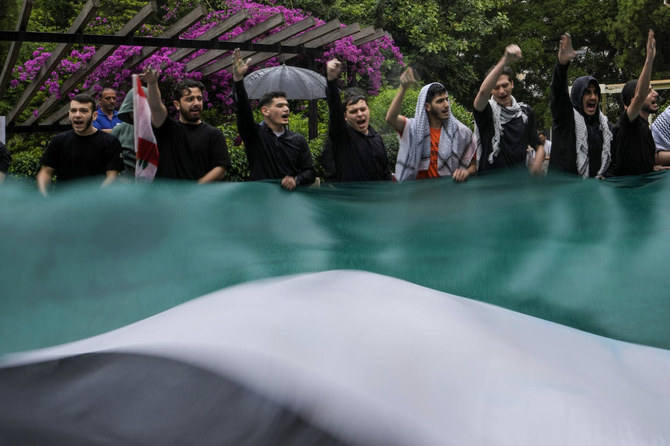
- Students at Al-Nahrain University waved the Palestinian and Iraqi flags
- Iraq does not recognize Israel while all Iraqi political factions support the Palestinian people
BAGHDAD: Dozens of Iraqi university students and professors rallied Thursday at a Baghdad campus in solidarity with Gaza and pro-Palestinian protests at US universities, AFP correspondents said.
Iraqi Education Minister Naeem Al-Aboudi earlier this week expressed his support for the “free voices in universities” around the world, and called for protests in solidarity with the embattled Gaza Strip.
Students at Al-Nahrain University waved the Palestinian and Iraqi flags.
“With all that is happening to our people in Gaza... of course I must be among the first to come to raise our voice,” student Aya Kader, 20, said.
“It is very positive to see the Palestinian flag being waved at American universities,” she said.
Weeks-long pro-Palestinian protests that have swept campuses across the United States have “encouraged us,” she added.
Students and professors also carried banners calling for a “free Palestine,” with some wearing the keffiyeh scarf that has long been a symbol of the Palestinian cause.
“We are here to tell them to stop the killing and to thank the free voices around the world,” said Professor Jomaa Salman, head of the engineering faculty.
“If the storming of Columbia University had happened in another country, especially in a third world country, they would have moved heaven on earth.”
The Iraqi embassy in Washington called Wednesday for “restraint, calm, respect for human rights and peaceful expression” as unrest over Israel’s war in Gaza simmered on US campuses.
Iraq does not recognize Israel while all Iraqi political factions support the Palestinian people.
In 2019, popular protests broke out in Iraq against the ruling establishment, and a security crackdown left more than 600 people killed.
The United States is Israel’s largest military supplier.
Student protesters on American campuses say they are expressing solidarity with Palestinians in the war-devastated Gaza Strip, prompting large-scale police arrests.
The Gaza war broke out after the unprecedented October 7 Hamas attack on southern Israel which resulted in the death of 1,170 people, mostly civilians, according to an AFP tally based on Israeli official figures.
Vowing to destroy Hamas, Israel retaliated with a massive offensive that has killed at least 34,596 people in Gaza, mostly women and children, according to the health ministry in the Hamas-run territory.
Militants also seized hostages during the attack, estimating that 129 of them remain in Gaza, including 34 the military says are dead.
UAE FM discusses Gaza with Israel’s opposition leader
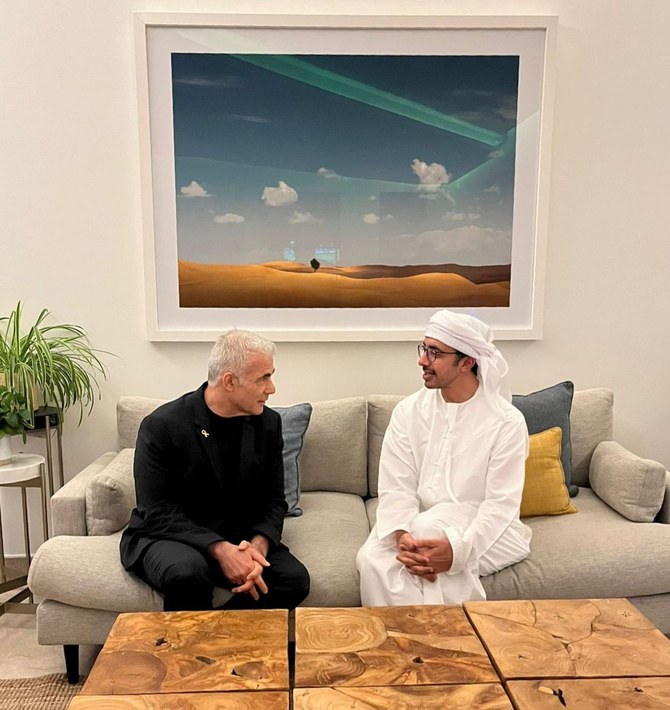
- Sheikh Abdullah stressed the need to restart talks on the two-state solution in Palestine
ABU DHABI: The UAE’s Foreign Minister Sheikh Abdullah bin Zayed Al-Nahyan held discussions on developments in Gaza with Israel’s opposition leader Yair Lapid in Abu Dhabi, Emirates News Agency reported on Thursday.
During the meeting, Sheikh Abdullah stressed the need to restart talks on the two-state solution in Palestine, which he said would ensure permanent regional peace and security.
He called for additional efforts to reach an immediate ceasefire in Gaza, which would prevent the conflict spreading to the rest of the region.
Sheikh Abdullah added that it was important for aid to reach Gaza, and that the lives of civilians should be protected.
Palestinian security force kills Islamic Jihad gunman in rare internal clash
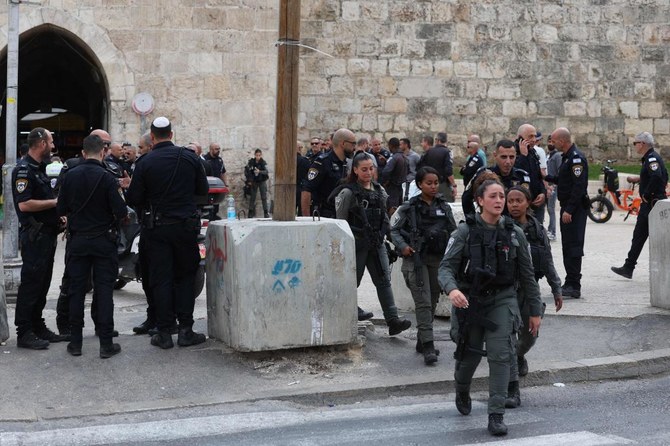
- Al-Foul was “treacherously ... targeted in his car” without provocation, the brigades said in a statement. “This crime is just like any assassination by Israeli special forces.”
RAMALLAH: Palestinian security officers killed a gunman in the occupied West Bank on Thursday, a rare intra-Palestinian clash whose circumstances were disputed and which the fighter’s faction described as an Israeli-style “assassination”.
Palestinian Authority security services spokesperson Talak Dweikat said a force sent to patrol Tulkarm overnight came under fire and shot back, hitting the gunman. He died from his wounds in hospital.
Videos circulated online, and which Reuters was not immediately able to confirm, showed a car being hit by gunfire.
A local armed group, the Tulkarm and Nour Shams Camp Brigades, claimed the dead man, Ahmed Abu Al-Foul, as its member with affiliation to the largely militant group Islamic Jihad.
Al-Foul was “treacherously ... targeted in his car” without provocation, the brigades said in a statement. “This crime is just like any assassination by Israeli special forces.”
President Mahmoud Abbas’ PA wields limited self-rule in the West Bank, and sometimes coordinates security with Israel.
Parts of the territory have drifted into chaos and poverty, with the PA and Israel trading blame, especially since ties have been further strained by Israel’s offensive in Gaza.
Hamas, an Islamic Jihad ally which rules the Gaza Strip and has chafed at Abbas’ strategy of seeking diplomatic accommodation with Israel, denounced “the attacks by the PA’s security forces on our people and our resistance fighters”.
Palestinian security forces and gunmen have exchanged gunfire several times in the last year, but deaths are rare.



